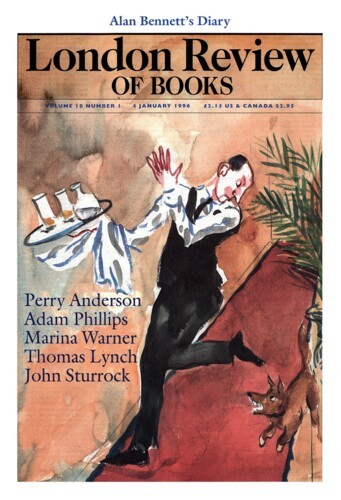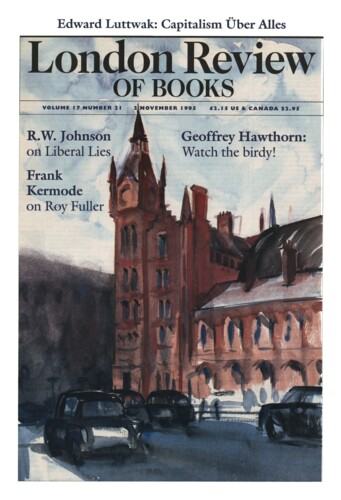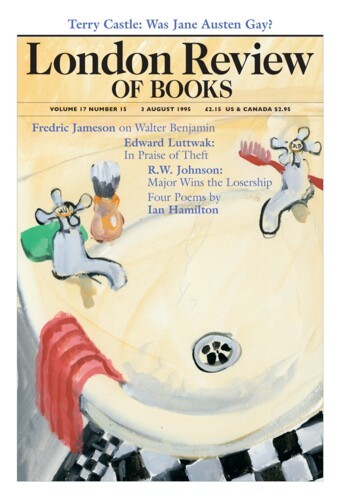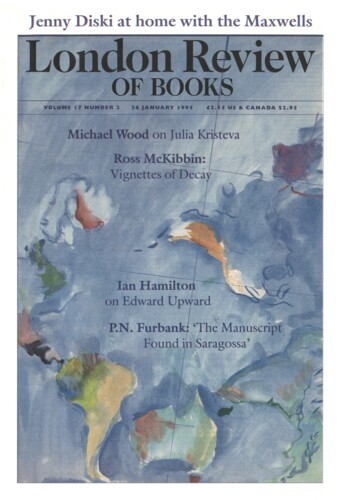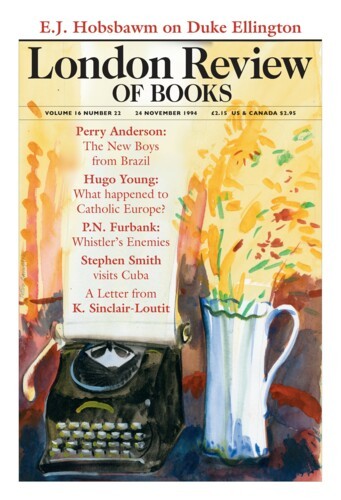If the French were shorter in Flaubert’s day, did they need to be less fat in order to be called ‘fat’?
P.N. Furbank, 4 January 1996
It was Wittgenstein’s objection to Freud and his Interpretation of Dreams that the procedure might be impressive, but why did interpretation have to end just there, what was to stop it going on indefinitely? On Julian Barnes, who is so addicted to the business or game of interpretations, the question does not seem to weigh so heavily. We perhaps misunderstand Barnes if we take him to be profoundly worried by hermeneutic doubts: by the fictionality of the past and the inaccessibility of truth. When the Flaubert addict in Flaubert’s Parrot writes to the Grocers’ Company to ask whether redcurrant jam was the same colour in the great novelist’s day as it is now, he receives a reassuring answer: it almost certainly was, though perhaps a little cloudier. But there will be no such easy answer, he is forced to realise, to questions such as whether, if the French were shorter in Flaubert’s day, they needed to be less fat in order to be called ‘fat’. Nor, presumably, will it matter in the slightest if there is not. Barnes’s tone is blithe, because the question, what can a novelist’s life and relics tell you about his work, absurd though it is, is a fertile and exponentially expanding one. If one stuffed parrot can tell you something about Flaubert, what may not fifty stuffed parrots do for you? Interpretations can themselves be interpreted; there is always a motive for an interpretation if you know where to look for it.
